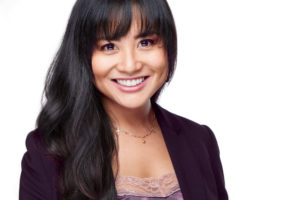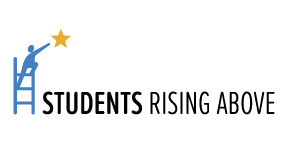Women’s Empowerment Month: Lift as You Climb – Rising Above and Rising Alongside

In honor and celebration of Women’s Empowerment Month, we’re featuring women, particularly BIPOC women in leadership, who are taking action for equality and paving the way for our future leaders.
We had the opportunity to sit down with Christine Start, Deputy Public Defender and Certified Professional Coach. Christine shares her career pathway as a public defender, professional coach, and adjunct lecturer at UC Davis School of Law; discoveries of the unfair reality of the criminal legal system; and her hope and advice for women of the next generation.
Read the full story below:
Q&A:
Please share a little about yourself? Where are you from? How did education shape your life?
I am a mama to Luca, age 2. A step-mom to Tavake and Vai, ages 13 and 10. And wife partner to Sergio of over 7 years. I was born and raised in Union City, CA and now reside in Vallejo, CA as a Deputy Public Defender. I knew over 15 years ago during my undergraduate years at UC Berkeley that I wanted to become a public defender and my legal education served as the pathway to follow my dreams. As the first-born daughter of Filipino immigrant parents, the importance of education was instilled in me during my early childhood. I was a natural born leader, the eldest of all of my cousins and siblings, always an over-achiever and my parents’ did not expect anything less.
How did you find your career path as a Deputy Public Defender and Certified Professional Coach?
Both careers found me. I also teach first-year law students at UC Davis School of Law as an adjunct lecturer. I knew I wanted to be a public defender while studying in Washington, D.C. through the UC System’s program in Washington, D.C. During my time in D.C., I served as a criminal defense investigator for Georgetown University School of Law’s Criminal and Juvenile Justice Clinics. One of my assignments was to investigate and draft a parole affidavit in efforts to help our client get released during his third attempt at parole. He had been in prison for over twenty-five years after killing his childhood friend at age 17. As a result, I visited him in prison frequently and developed a unique connection with our client. Through our time together, meeting his family and investigating his case, we uncovered many injustices in his legal case that shocked me to my core and opened my eyes to the unfair reality of the criminal legal system. More pertinent, I formed a profound connection with a man who although his life experiences and circumstances were starkly different than my own, helped me to realize that we weren’t so different after all– we both wanted the same things: to be treated with dignity and respect, to belong and be seen as fellow human beings and to walk free without being deduced by others for our worst act or lapse of judgment. He told me he never had someone like me in the legal system help him before and in that moment I was called to be a public defender. Coaching, teaching, and all the other professional identities I occupy will probably take too long to explain in one story. What I think is relevant to share is that I am still exploring my professional journey, that I currently believe I am being called to expand on my path and I know that being a public defender is not the end of it.
How have you navigated a gender-related challenge in your career?
With a whole lot of grace, courage and strategic authenticity. As an Asian woman lawyer, I have been underestimated, undervalued, and overlooked. I have had to use my voice, my intuition, my emotion and my honesty to stand up and speak truth to the harsh reality of working in a white dominated heteropatriarchal legal system. One experience that occurred was being overlooked by my boss for what I considered a promotion assignment. I had to be strategic about how I was going to tackle this challenge given the conditions I was working in at the time which ranged from identifying and considering factors such as COVID-19, the pre-existing relationship dynamics already at play in my office, the lack of social power I had as a mid-level attorney, the experience of other mid-level attorneys in my office, and so forth. I thoroughly vetted my options with a diverse set of professional opinions I trusted ranging from other women within and outside of my office, a man I trusted in a supervisory position in a completely different office, mentors, my husband and folks within the hierarchical system of my workplace that may not have been attuned to the inner-workings of my specific situation, but who’s opinion held weight simply by virtue of their own experience and legal knowledge. After this process, I sat with my eighty year-old self and asked her: what would the wise me want the present me to do? And once I felt in complete alignment: head, heart and gut, I was able to confront my boss– still scared, but fully embodied in my truth. He assigned me my next promotion assignment a month later.
Who are women in leadership you look up to?
There are many. Among us living: Stacey Abrams, Oprah Winfrey, Michelle Obama, Andrea Lyons, Ruthe Ashley, Alicia Garza, Ruby Ibarra, Dr. Robyn Rodriguez, Ann Nguyen, Nisha Moodley to name a few.
Please share your experiences as a BIPOC woman in leadership / law.
I am the proud Visionary Founder of Pinay Powerhouse. A collective movement of self-identified Pinay lawyers and aspiring lawyers empowering one another and ourselves to be leaders in the law. As part of this Collective, I am a lead Facilitator in our monthly sacred circles intentionally cultivated to support one another in whole-self leadership, liberation and decolonization work. I also help to birth our annual womxn’s empowerment conference and other programming and events to center our experience while in solidarity with other BIPOC womxn. I am the Wellness Director and lead the Womxn’s Lawyer Network for the National Filipino American Lawyers Association where I help put on monthly wellness events targeted towards lawyer well-being in our community. I sit on the boards of the Asian American Criminal Trial Lawyers Association and Asian Pacific American Bar Association of Solano County. I am Past President and sit on the Advisory Board to the Filipino Bar Association of Northern California. I also lead the Wellness Committee at my public defender office and sit on the Racial Justice Committee where we focus on racial justice issues legally, externally and internally as an office. What’s interesting to note about all of the above experiences is that my leadership as a lawyer is centered around my cultural identity as a Filipinx-American woman. I acknowledge that it is through the paths paved by other model BIPOC leaders in my community that I embrace and embody the sense of duty and loyalty to carry on a lineage of leadership dedicated to uplifting BIPOC and Filipinx lawyers.
What do equity and equitable opportunities mean to you?
It means creating, (re)claiming and embodying spaces of belonging where all humans are liberated to be exactly who they are and liberated to become exactly who they are meant to be, free from oppression and harm.
Please share your experience volunteering with SRA.
Last year I was invited by SRA to be a part of their Career Insight Day where I helped Paula Galvez and Denisse Velázquez organize a BIPOC Lawyer Panel of Social Justice Attorneys!
What does SRA mean to you in terms of closing equity gaps?
I’m super proud of seeing fellow BIPOC students rise up, (re)claim, rebuild and reimagine spaces in educational, economic and political systems that were intentionally designed to effectively keep us from achieving the collective equity, dignity and humanity we deserve.
What does leadership mean to you?
Leadership means fiercely embodying your truth and light while calling in and inspiring others to rise and shine along with you.
What is your greatest hope for women of the future / next generation?
That we are liberated to become the brilliant, bold, beautiful and badass leaders that our ancestors called us into and that our descendants deserve.
Any advice for future leaders?
Define what leadership means to you and do the work to embody that. There is not one right way to be a leader, but a right way to lead is to be in integrity with who you are and who you are becoming. Remember that your intentions and actions ripple impact and that as a leader when you live through example, you lead by example. And please don’t forget to lift as you climb because rising above requires rising alongside. Collective rising is leadership!
